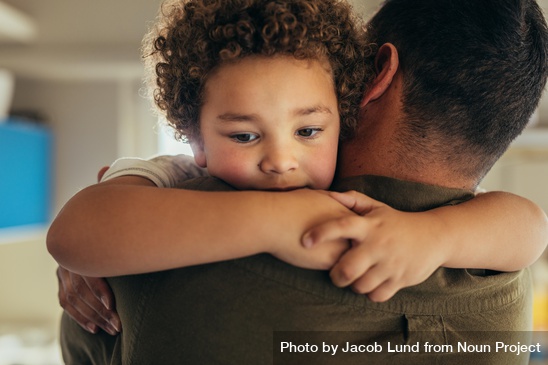October 12, 2023
By: Emmy Reilly
Toddlerhood can be a stressful time for parents but is also a time when the relationship between parent and child moves into what attachment researchers call a “goal corrected partnership”. That is, in secure relationships, children (at least some of the time) want to partner with the parent to achieve mutual goals. These times, of course, contrast with the “no” times which give rise to the idea of the “terrible two’s”. The back and forth between the toddler wanting to please and work together with the parent and the toddler wanting to be independent and get their own way is part of what makes parenting of toddlers both so challenging and so rewarding. It is also a great time to provide more support for parents!
Warm, responsive parenting helps to set children up for better cognitive and emotional development and physical health, and this type of parenting requires compassion for your child and the parent’s regulation of their own stress reactions. Compassion can be induced using loving-kindness meditations (LKMs), a type of meditation that involves sending feelings of kindness to oneself, loved ones, and all beings. LKMs promote a relaxed physiological state, which is helpful for sensitive, responsive parenting. However, no one has yet tested whether LKMs reduce stress physiology in parents or support sensitive parenting behaviors. Therefore, for this study, which was my (Emmy Reilly’s) dissertation, that is exactly what we set out to do! We did a mini trial testing the immediate effects of a LKM on stress physiology and parenting behaviors in parents of toddlers.
Who participated?
141 parents of toddlers (18-36 months) completed an online survey and participated in a video call between March and December 2022.
What we did
Parents completed an online survey including questions about their household, COVID-19 impacts on their lives, self-compassion and compassion for others, parenting stress, and mindfulness practices. Within 2 weeks of completing their survey, parents participated in a 1-hour video call on Zoom. Parents were randomly assigned to listen to either a LKM, a focused imagery audio, or a podcast about toddler play during the video call for 15 minutes. The focused imagery audio served as an active control condition since it was somewhat relaxing and involved guided imagery. The podcast served as a non-meditative control condition. Then, parents completed a brief survey about their state self-compassion and then engaged in a play-based interaction with their toddler. We had parents play with their child with some toys, then clean up the toys, and then work with their child to make a face out of playdough. Finally, we had parents talk about their child for a few minutes while their child was outside of the room. Throughout the video call, parents also provided 5 small saliva samples to measure their stress physiology before and after listening to the LKM or control audio and before and after interacting with their child.
Findings
Parents who listened to the LKM reported that the LKM made them feel more compassionate. Parents who listened to the LKM slowly decreased their stress (measured in saliva samples) across the video call compared to parents who listened to the podcast or focused imagery. Overall, parents in our study were highly sensitive to their children. Perhaps for this reason, we did not find that listening to the LKM increased sensitivity. Our results have led us to think of ways of trying LKM’s in groups of parents who are more highly stressed than those in our study are, and who may not already be so highly sensitive to their children’s signals.
Conclusion
Supporting compassion and self-compassion in parents of toddlers may be helpful both for the parents’ wellbeing and their child’s development! LKMs are one possible tool for promoting compassion and self-compassion, although individuals should take care when listening to these meditations as negative emotions can sometimes come up. However, giving yourself kindness and caring during challenging times is a great way to practice self-compassion and could benefit your child too!


